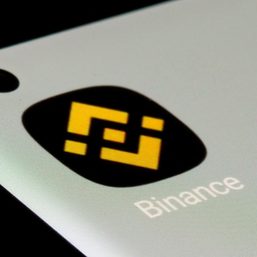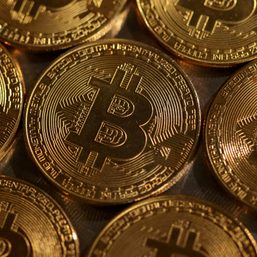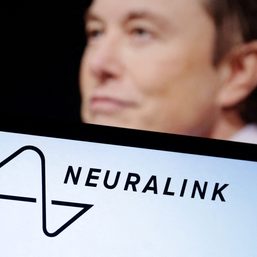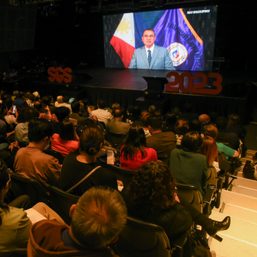SUMMARY
This is AI generated summarization, which may have errors. For context, always refer to the full article.
![[Science Solitaire] Homo obliviscius (common name: Tragically forgetful human)](https://www.rappler.com/tachyon/2021/09/ss-tragically-forgetful-human-sq.jpg)
“I went to Mars.”
This was what was written on a rock souvenir that I got from the dad of a close friend when we visited their house in Mars Street in Marikina when we were in college over three decades ago. I remember chuckling over my friend’s dad’s sense of humor, and admired how he extended himself to his son’s friends. It was funny for obvious reasons, but it was even funnier for the not-so-obvious one too. It hit me with the reality hard on the head, albeit with laughter, that we are creatures, for better or worse, embedded on this planet and no other.
Fast forward over three decades later, and we are still here. Elon Musk in all his singular, amply-funded and compacted vision and hubris promises to solidify your dreams of being part of the Mars colony – someday. The tectonic shift to digital platforms of the many realms of human endeavor – trade, finance, politics, culture, science, art – seemed to have given us a powerful feeling that even if we are still on the planet, we were such geniuses to have been able to create another sphere – the digital sphere. “Paperless” made us fool ourselves that since we don’t cut trees for our online transactions, we are “planetless.” In this sphere, we all have a “levitated” sense – where we forget; totally forget that all that we create, even digitally, STILL come from the planet and would need the planet – the biosphere to happen and to continue.
In the pandemic, we have relied so much on what we can do and who we can be in the virtual space that we seem to have become even more deeply oblivious that our human lineage was, is, and will be of the Earth. This hit me even harder with the craze about NFTs.
Non-Fungible-Tokens (NFTs). “Fungible” means exchangeable in whole or in parts that make up the whole, so it follows that “non-fungible” means these are “tokens” (symbols) that are NOT exchangeable because they are unique. These have taken off in the digital sphere as it has opened a whole new shining shimmering splendid world of “ownership” for stuff. Yes, “stuff” – all the stuff that humans get attached to, fight, and die for – trash, real estate, artworks, videos, photos, and audios of human genius and folly.
Having an NFT for an asset (digital or physical) makes you the one and only owner of a that asset. This means that for instance, for artwork, if I decide to document my ownership of “I went to Mars,” I can go to a digital service called a “blockchain” to get an NFT for it so that I can be the certified unique owner of that asset. “Blockchain” is the digital system that runs on currencies like “bitcoin” and NFTs.
“Blockchain” technology is a digital way of storing information in blocks with time stamps in super fast and super long codes (in quintillions – “1” followed by 18 “0s”) and chaining them together in incredibly knotted math puzzles so that it, as it thinks and claims for now, would be extremely difficult to hack. This is why finance loves it. So my “I went to Mars” can have a gazillion copies on the internet BUT when it comes to ownership, I’m it.
So what is wrong with that? Because NFTs do not happen in Mars! It happens here on Earth. Generating even just one NFT requires an enormous amount of computing power that one estimate is equivalent to, take your pick: boiling a kettle 3.5 million times, flying for 1,500 hours, or using your laptop for 2,500 years. If, for example, the Science Museum in London decides to NFT all its over 32 million “items” in display and storage, we may really need to have a treaty with Martians to underwrite the way we decide to own stuff through blockchain and cryptocurrencies.
In this article in The New York Times, artist Joannie Lemercier was stunned to find out that generating NFTs for his six artworks which happened in 10 seconds consumed way more power than two years of running his art studio. “Proof of ownership” has become a lot more insidious in eating up the Earth’s resources than making the “thing” you own.
Because we humans love, fight, live, and die for things we own, most of us are immediately and largely attracted to seemingly unbreakable ways of ownership. Like with social media in its very early stages when we had critics saying, “Who would want to make their thoughts public for all to see?” NFTs and bitcoins and the blockchain technology underneath it all, appeal to our lowest but deepest desires. “Lowest” means “easy,” and “easy” means “fast.” It has nothing to do with being “good” or “better.”
You only have to look at the runaway “would have been comedic if it were not more tragic” trajectory of social media to have an idea of what NFTs and cryptocurrencies will do to the world of “stuff” – real, virtual – that can be owned. Again, we were swept away by what technology can do before reckoning with the heavier costs, including what they mean for our world and in our lives, present and future. We did it with the web of life when we mined the planet. We know where that got us. We have not even begun to solve that, and we are doing it again in maybe worse ways but definitely faster ways, as we also mine cryptocurrencies and NFTs.
We are Homo sapiens – beings who know that we know. But as we have also clearly proven with our past and present, that is trumped by the fact that we are more of beings who forget. We know a little, we forget a lot more. That’s the story of, that’s the melancholy of being human. – Rappler.com
Maria Isabel Garcia is a science writer. She has written two books, “Science Solitaire” and “Twenty One Grams of Spirit and Seven Ounces of Desire.” You can reach her at sciencesolitaire@gmail.com.
Add a comment
How does this make you feel?



![[Finterest] What is cryptocurrency, and what’s with the hype?](https://www.rappler.com/tachyon/2023/12/crypto-money-laundering-reuters-scaled.jpg?resize=257%2C257&crop_strategy=attention)






There are no comments yet. Add your comment to start the conversation.